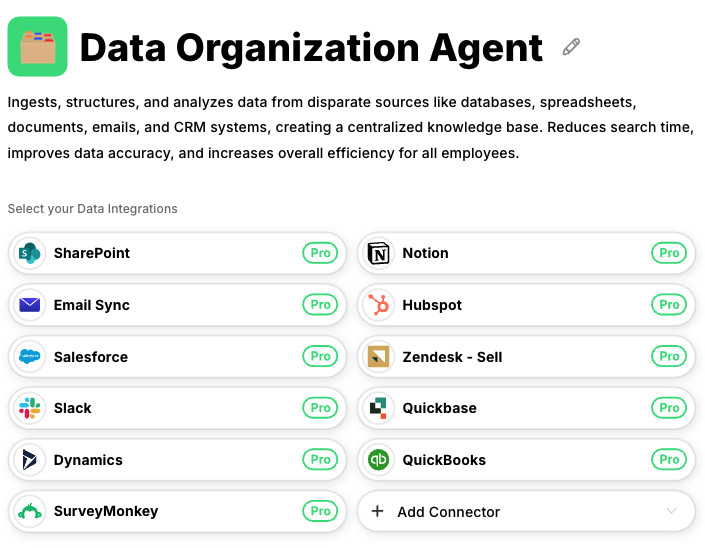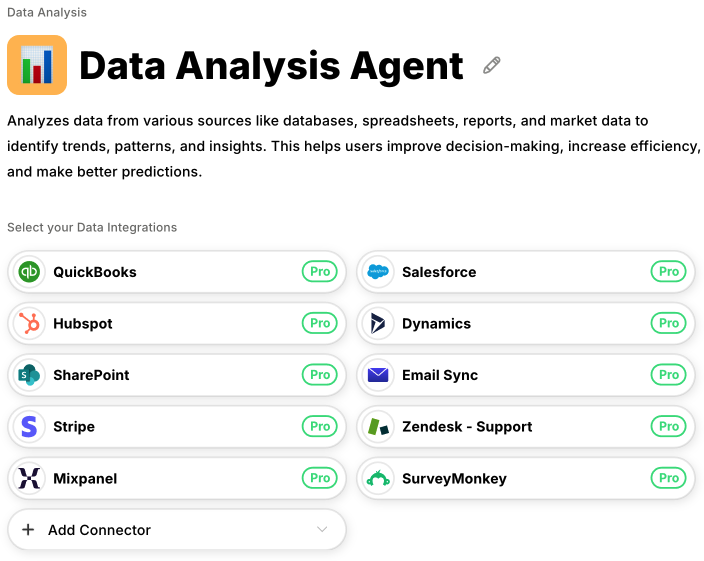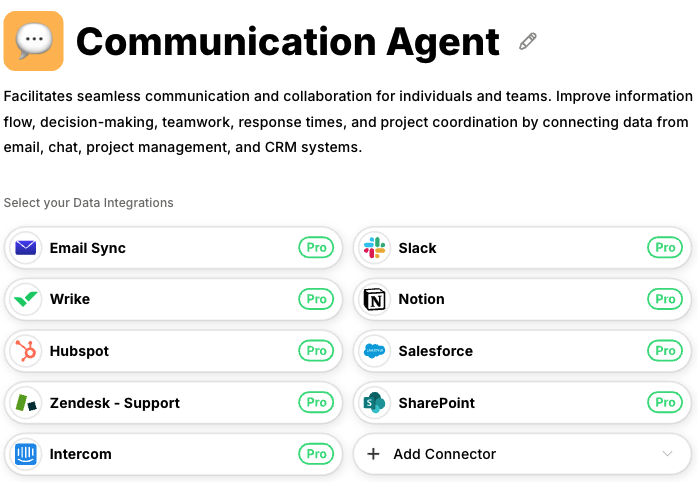This article was last updated on January 16, 2026.
Your top leasing agent closes deals others struggle to land. She knows exactly which prospects deserve immediate attention, which companies have the financial stability to sign multi-year leases, and which inquiries will waste everyone's time. But her qualification criteria, research shortcuts, and prioritization instincts live in her head, not in a system your entire team can execute consistently.
Meanwhile, the rest of your leasing team approaches each prospect differently. Qualification rigor varies wildly. Some leasing agents spend hours researching company financials before the first call while others wing it. Follow-up timing depends on whoever happens to pick up the lead. Your portfolio suffers from inconsistent conversion rates, variable tenant quality, and no systematic way to improve.
This is the prospect qualification gap that AI agents are built to close.
Why Manual Prospect Qualification Costs You Deals
Manual prospect qualification breaks down in predictable ways. Leasing agents spend significant time gathering data, verifying income claims, researching business backgrounds, and assessing lease history, all before any real conversation occurs. That research time compounds across every lead, whether the prospect is a Fortune 500 company ready to sign or a startup that can't meet your minimum requirements.
The qualification inconsistency creates downstream problems that ripple through your portfolio:
- Inconsistent prospect prioritization and qualification scoring: Manual prospect qualification workflows lack standardization across leasing teams. Industry adoption of AI in CRE has accelerated dramatically, though many organizations report their workforce lacks adequate training for implementation. These infrastructure and training deficits create conditions where different leasing agents may apply inconsistent qualification criteria, potentially affecting which prospects receive priority attention and overall lead-to-lease conversion performance.
- Prospect intelligence fragmentation: Financial information, business context, space requirements, and lease history scatter across emails, spreadsheets, and individual leasing agent notes. When a prospect calls back, whoever answers starts from scratch.
- Lost institutional knowledge: Why certain prospects chose competitors, what objections killed deals, and which qualification signals predicted success all live in leasing agent memory rather than informing team-wide strategy.
- Inconsistent tenant quality: When qualification rigor varies by leasing agent, so does tenant quality. Some properties end up with financially unstable tenants while better-qualified prospects signed elsewhere.
How AI Agents Automate Prospect Qualification Workflows
AI agents don't replace the judgment calls your leasing team makes. They automate the data gathering, verification, and scoring that should happen before those conversations begin. This ensures every leasing agent works from the same foundation.
Automate Prospect Financial Qualification
AI agents automate prospect financial qualification across multiple verification layers. Datagrid's Data Organization Agent can consolidate tenant data from CRM systems, public records, and market databases into searchable profiles.

AI agents can systematically check credit indicators, verify income information automatically, and evaluate financial capacity, enabling qualification assessment based on the specific requirements you've established for your portfolio rather than applying generic thresholds.
Build Prospect Profiles with Continuous Research
Rather than waiting for prospects to submit information or leasing agents to manually research each company, AI agents work continuously in the background by ingesting market data, company news, and deal history. High-intent prospects appear in your pipeline with complete profiles before your workday begins.
The research workflow typically includes:
- Company profile assembly (business background, industry positioning, growth trajectory)
- Lease history evaluation (previous commercial lease terms, payment patterns, space requirements over time)
- Market context (how this prospect compares to others in your pipeline and historical deals)
- Risk indicators (patterns that suggest potential problems before lease signing)
This intelligence foundation ensures your leasing team enters every conversation fully informed about the prospect's financial capacity, business trajectory, and lease readiness, eliminating the guesswork that slows deal velocity.
This shift from reactive research (after inquiry) to proactive monitoring (before inquiry) frees your leasing team to spend more conversation time on relationship building and negotiation rather than basic fact-finding.
Match Prospects to Your Qualification Criteria
AI agents execute your qualification methodology, not a generic algorithm. Datagrid's Data Analysis Agent can score leads based on qualification strength instantly and assess multiple qualification factors at the same time, prioritizing responses based on likelihood to sign leases.

The financial thresholds, space requirements, timing preferences, and risk factors that matter for your specific portfolio become the evaluation criteria, not generic industry benchmarks.
Scale Prospect Scoring with AI Agents
Lead scoring transforms qualification from an art practiced inconsistently into a systematic workflow your entire team can execute. AI agents generate qualification scores based on systematic analysis rather than subjective judgment, using data inputs that typically include:
- Budget parameters and financial verification results
- Space requirements matched against available inventory
- Timeline urgency and decision-making indicators
- Historical patterns from similar tenant profiles
AI agents enable review-and-approve workflows rather than fully autonomous decisions. They handle prospect coordination tasks (including surfacing opportunities, qualification scoring, and data enrichment) while making it easy for your team to review and approve before passing leads to deal-makers.
Connect AI Agents to Your Leasing Systems
For AI agents to automate qualification effectively, they need connectivity to the data sources your leasing operation already uses. This typically means integration with:
- Property Management Systems (platforms like RealPage, Yardi, and VTS that contain lease data, prospect information, and operational workflows)
- CRM Systems (Salesforce and property-specific CRM solutions like RealPage's Knock platform that house prospect interaction history and lead tracking)
- Credit Bureaus and Financial Verification Services (third-party providers like Plaid that validate income claims and assess financial capacity)
- Public Records Databases (external data sources that provide background information on prospective tenants and their companies)
- Market Data Sources (competitive intelligence and market analytics platforms that inform prospect timing and intent assessment)
Datagrid's platform can connect directly with property management systems, credit bureaus, and lead sources to enable this unified qualification workflow.
Implement AI Prospect Qualification Successfully
Industry reports indicate that AI implementation success varies significantly, with workforce training and technology infrastructure emerging as common implementation challenges. Adoption is accelerating industry-wide.
According to EliseAI's survey, 85% of AI adopters saw measurable improvements in lead-to-lease conversion rates. UDR projects a 65% reduction in call center costs through AI implementation. These results demonstrate the qualification automation opportunity for organizations with the infrastructure and training to capture it.
Successful implementation requires:
- Documented qualification criteria: AI agents work most effectively when qualification standards are documented. Without written qualification methodologies, AI agents cannot reliably standardize and automate the evaluation process across all prospects.
- Clean data infrastructure: Qualification automation requires accessible, structured data from your CRM, property management systems, and market sources. Fragmented data creates fragmented results.
- Change management investment: Your team needs to trust the qualification scores enough to act on them. That trust comes from seeing the system work and understanding how it reaches its conclusions.
Turn Qualification Expertise Into AI Agent Workflows
The leasing directors seeing results from AI qualification aren't implementing technology for its own sake. They're documenting their explicit qualification criteria (including financial requirements, timing preferences, and space needs) and giving those standardized instructions to AI agents that execute consistently across every prospect, every property, and every market.
Datagrid's Data Organization Agent consolidates tenant data from CRM systems, public records, and market databases into searchable profiles.

Meanwhile, the Communication Agent ensures consistent follow-up according to your established methodology by qualifying prospects against documented criteria, enriching company and industry data, and automating follow-up for income verification, credit assessment, rental history review, urgency determination, and risk assessment.

This approach ensures every leasing agent has the same intelligence foundation your best performer works from, automatically, consistently, and at scale, rather than leaving qualification to individual judgment.
Automate Prospect Qualification and Scoring with Datagrid
Your top leasing agent's qualification instincts represent years of accumulated expertise. Datagrid's AI agents can transform that expertise into systematic workflows your entire team executes:
- Automated financial verification: AI agents systematically check credit indicators, verify income information, and evaluate financial capacity against your specific portfolio requirements, eliminating hours of manual research per prospect.
- Continuous prospect research: Rather than waiting for prospects to submit information, AI agents work in the background ingesting market data, company news, and deal history to build complete profiles before your first conversation.
- Customizable qualification scoring: The Data Analysis Agent scores leads based on your documented financial thresholds, space requirements, timing preferences, and risk factors, ensuring consistent evaluation across your entire leasing team.
- Unified data connectivity: Datagrid connects directly with property management systems, CRM platforms, credit bureaus, and market data sources to enable qualification workflows without manual data gathering.
- Review-and-approve workflows: AI agents handle prospect coordination tasks while making it easy for your team to review and approve before passing leads to deal-makers, keeping human judgment in the loop.
Get started with Datagrid to automate prospect qualification and free your leasing agents to focus on the relationship building and negotiation that actually closes deals.













